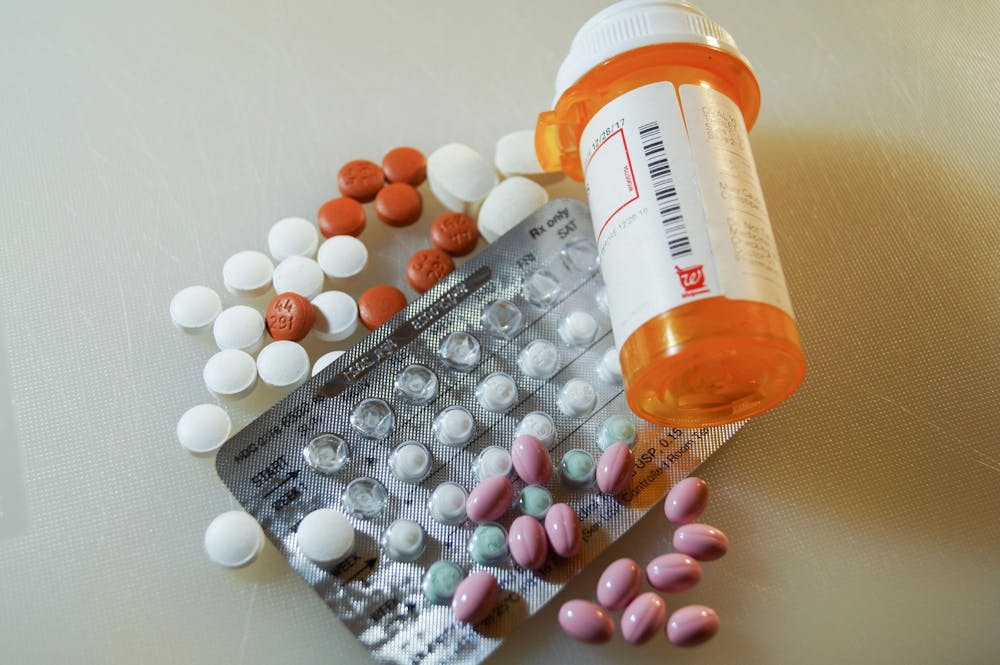Last year, University neuroscientists Alban Gaultier and Dorian Rosen found that antidepressant drug Fluvoxamine may help control inflammation in the immune response system. In May, that discovery sparked a clinical trial at Washington University in St. Louis to determine if the drug could help treat COVID-19 patients, as reducing inflammation in the body has become a key way to fight the virus.
Fluvoxamine, also known as Luvox, is most commonly used to treat Obsessive Compulsive Disorder. The drug functions as a selective serotonin reuptake inhibitor by increasing levels of serotonin — a chemical in the brain associated with feelings of well-being and happiness — in the body. Since 1983, Fluvoxamine has been used by more than ten million patients around the world.
SSRIs are commonly prescribed because of their safety and tolerability, and many SSRIs, including Fluvoxamine, have been used to treat a variety of other conditions such as migraine headaches, fibromyalgia and anxiety.
In their initial experiment, Gaultier and Rosen determined that the drug reduced the production of cytokines — small proteins secreted by the immune system that regulate immunity and inflammation. The drug also proved effective in reducing damage in the inflammatory response during sepsis — a life threatening complication of infection in which the immune system spirals out of control — and protected mice from lethal shock.
New research has found that many seriously ill coronavirus patients have a large number of cytokines in their blood. These high levels of cytokines likely result from cytokine storms, a severe immune response that releases a large number of cytokines in reaction to a disease or infection. During a cytokine storm, the body begins to attack its own cells rather than use all its resources to fight off the virus.
“The information we have so far suggests that the second phase of the illness can involve a life-threatening inflammatory reaction — what we call a cytokine storm,” said Caline Mattar, assistant professor of medicine in the Washington University infectious diseases division, in a press release from Washington University. “We want to learn whether fluvoxamine might help prevent that second phase of the illness.”
The trial is being led by Mattar and Washington University psychology professor Eric J. Lenze. It is expected to test whether or not fluvoxamine can prevent cytokine storms in patients with COVID-19, which could help keep the immune system in check and help fight the virus without destroying organs, according to Gaultier.
For some patients, blocking the production of cytokine may be life saving, as the cytokine storms accelerate the breakdown of the immune system, which often results in hospitalization. High fevers, lung damage and respiratory distress — symptoms currently experienced by thousands of COVID-19 patients — are signs of overworked immune systems.
The trial will test Fluvoxamine in 152 patients with COVID-19 in Illinois and Missouri, as the team's physicians are only licensed to treat people in those states. The patients will either receive the drug or a placebo while quarantined at home. The hope is to target patients who are not sick enough to go to the hospital and hopefully prevent them from getting sicker and being hospitalized. The patients will administer the medication themselves, as the study has been designed to be contactless, and then will use thermometers, fingertip oxygen sensors and automatic blood pressure monitors to monitor their own condition.
Washington University’s website offers information about who is eligible and how the trial will specifically interact with its patients virtually.
While it may sound unusual to administer a drug typically used to treat OCD as a COVID-19 treatment, Lenze believes it is in line with other alternative treatments being tested at the moment.
“Using a psychiatric drug to treat COVID-19 may sound counterintuitive, but it’s no more counterintuitive than using a malaria drug,” Lenze said in the press release.
Similar to Fluvoxamine, the malaria drugs remdesivir and hydroxychloroquine are being tested in “off-label” ways as COVID-19 treatments. “Off-label” testing of drugs by health care officials is not uncommon once a drug has been approved by the Food and Drug Administration.
Fluvoxamine received approval in 1994 when the FDA agreed that the benefits of the drug would outweigh its possible side effects like headache and nausea.
Gauliter notes the benefits that come from fluvoxamine already being FDA-approved.
“The clinical trial is a smart move to push forward, and since the drug is already approved, it will be easier for people to access it,” Gaultier said to The Cavalier Daily.
Even if the drug proves ineffective in fighting COVID-19, patients in the trial will still benefit from the supervision of the doctors and professional recommendations for further treatment.
Gaultier — who works closely with the Washington University team — believes the clinical trial is set to have its results by the end of June and hopes that fluvoxamine will improve COVID-19 outcomes.
“Hopefully the clinical trial will have a positive outcome, which everybody needs,” Gaultier said.







